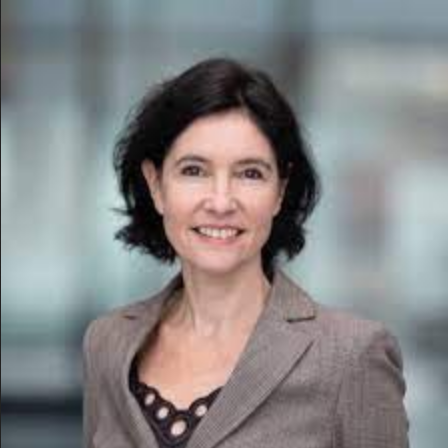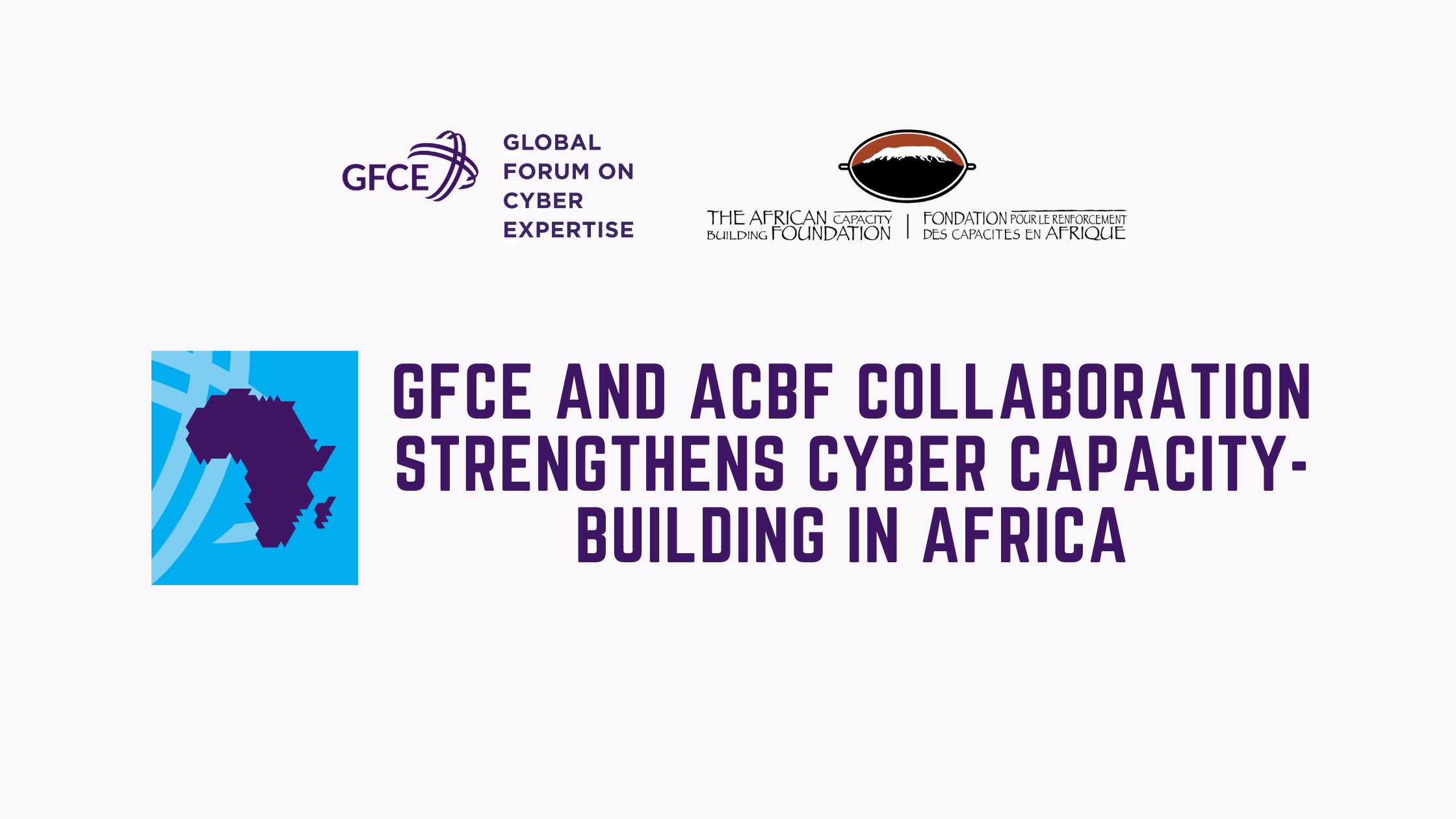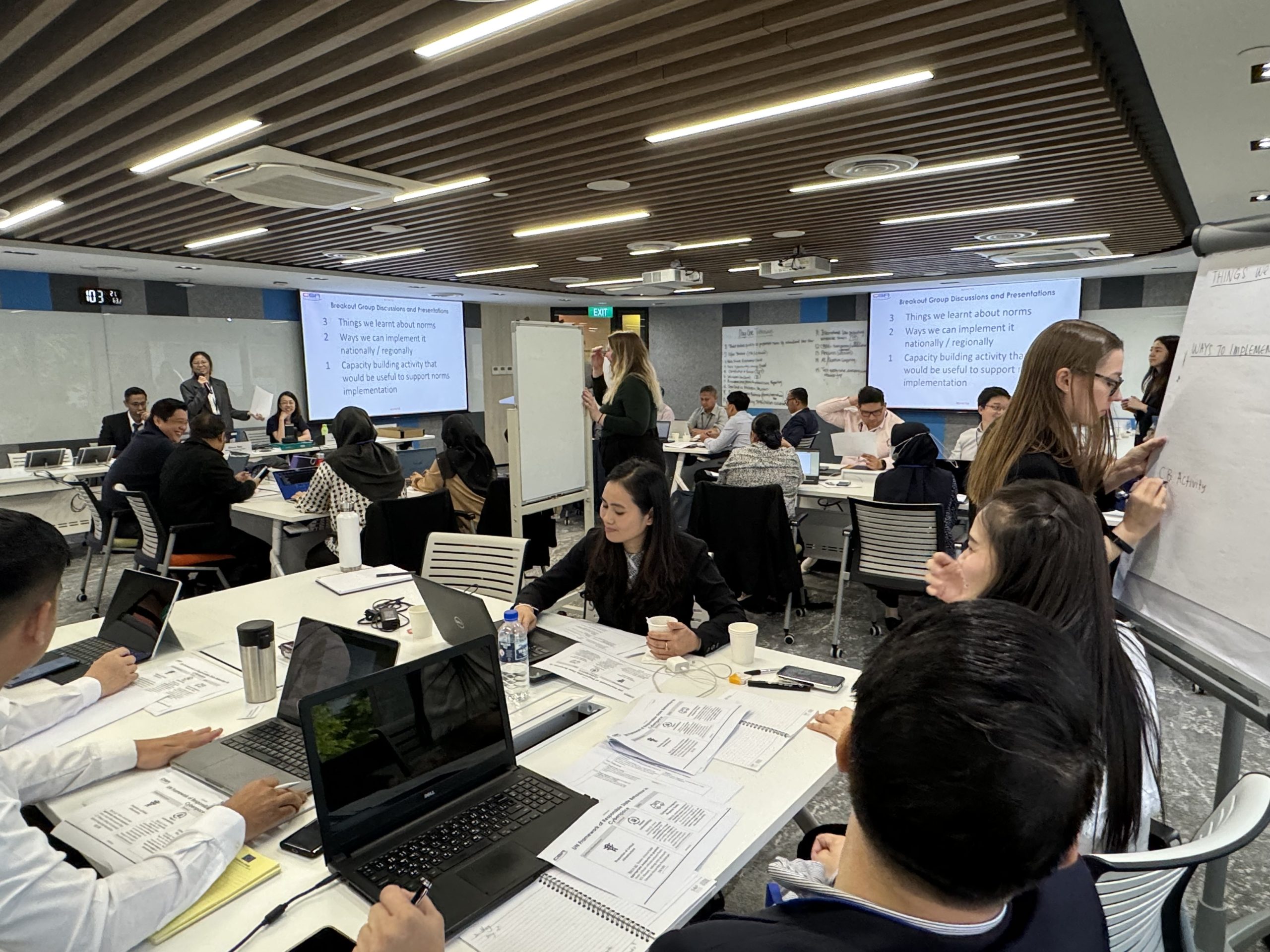Maartje Peters, Head of the Dutch Taskforce on International Cyber Policy, becomes the new co-Chair of the Global Forum on Cyber Expertise

Maartje Peters,
GFCE co-Chair on behalf of the Netherlands
Interviewed by: Giouli Lykoura, GFCE Secretariat Advisor
It is with a great pleasure we announce that Ms. Maartje Peters, Head of Taskforce International Cyber Policy of the Ministry of Foreign Affairs of the Netherlands, has been appointed as the new GFCE co-Chair on behalf of the Netherlands.
Ms. Peters has an extensive professional background as a diplomat with a focus on different areas of foreign policy such as human rights, security and stability, migration and development cooperation in many regions of the world. Before being appointed in the Dutch Ministry of Foreign Affairs, Ms. Peters was working for the United Nations.
For this article, we spoke to her about her experiences and her vision on her new role as the GFCE co-Chair.
A look back on your professional career: how did you move to the cyber domain as a diplomat?
The cyber domain is a new, fascinating and challenging adventure to me. I am looking forward to explore the many different layers. Cyber is a topic of influence to every single person individually, has great potential and is of major geopolitical influence.
In your capacity as Head of International Cyber Policy for the Netherlands, how important do you think cyber capacity building is in the cyber domain?
The Netherlands is a firm advocate for an open, free, peaceful, and secure digital world. Free, so that everyone has access to the internet and the opportunities it offers. Open, so that information can flow unimpeded from one user to another, in a single undivided cyberspace. Secure, so that personal data are protected, and privacy is safeguarded. Creating a cyberspace under those conditions can bring economic prosperity to all countries who embrace this view and all people who use it.
Cyber technology is being developed at an ever increasing speed, whereas our time to increase our capacity to cope with these developments is running away. It is quite a challenge with all the developments in cyber space that are happening at the same time. So capacity building remains of utmost importance. As capacity building becomes more and more important, actors need to work together to achieve a better understanding and better capabilities within the cyber domain. The GFCE played an important role in linking members’ requests in this area to parties that can offer this expertise.
In your capacity as the new GFCE co-Chair on behalf of the Netherlands, what role do you see the GFCE playing in the international cyber capacity building field in the future?
The role I see for the GFCE is to take a next step in supporting coordination and sharing knowledge amongst cyber capacity building practitioners by strengthening the regional liaisons and hubs, leading local coordination networks in a few priority countries and expand the Cybil Portal. But also by underlining the clearing house function that the GFCE offers.
But what is equally important is that GFCE principles and ideas are taken up by other institutions. It is not always easy to distinguish between the different players involved in the international cyber security landscape. We would do well to critically assess the need and the focus of the institutions we’re dealing with.
On a global level I believe the GFCE and the Multidonor Trustfund on Cyber Security at the World Bank are best positioned to deliver, each in their own way. They represent the broadest mass of interested countries and the widest selection of stakeholders. As to the EU I would suggest we keep in mind the global nature of the cyber security challenges and contribute to the mission of these institutions, through funding and participation. As individual member states we should live up to commitments we’ve made in the past, during previous meetings of the GCCS and to engagements that flow from the different UN processes (GGE, OEWG and what will be coming next the PoA). As to organisations active in this growing field I see that coordination will become ever more important. Better coordination could be achieved by supporting processes for international coordination such as the GFCE.
I think we really need to focus. I’m pleased to see that this message comes across in the recent report on trends and scenarios in international cyber capacity building by the EU Institute for Security Studies. I salute the Commission for commissioning this report.
There is also an opportunity coming up for this as well: the GFCE, the World Bank, the CyberPeace Institute, the World Economic Forum and other global leaders are currently exploring opportunities to organize a High Level CCB Conference that aims to advance and institutionalize cyber capacity building It will be a key opportunity to better connect capacity building with the development community and the private sector. I really believe for the GFCE to see the opportunity of widening its scope and for other to acknowledge the role of the GFCE in cyber capacity building and to not overlap capacity efforts.
What development do you see regarding diversity and gender in the cyber domain?
In the field of cyber we work towards a cyberspace that is open, free, stable and secure for everyone.
People, in all their diversity, are stakeholders and should have a say in policies that affect them. This requires us to be aware of structural inequalities and gender biases that are present in the cybersecurity environment. As a consequence we need equal gender participation in cyberspace since cybersecurity impacts everyone.
Cyber is more than just the technology itself. Responsible state behavior in the cyber domain is about changing behaviour in a positive, transparent and open way.
One of the activities we support is the ‘Women in Cyber Capacity Building’ network within the GFCE where female cyber security experts engage to increase their strategic impact in the cyber domain. We do look carefully at how and where we can represent the users of the cyber domain equally, to enable them to take a more prominent role on panel discussions in a multi-stakeholder environment. But this is just a small example. We need more of this, across the board and more effort from all stakeholders involved in the area of education and career development from the technical level up to management. This needs time.
What do you hope for the Task Force Cyber to achieve in the Future?
In the coming years, I see a steady growth of opportunities, challenges and interest in the cyber domain. In this coming year, together with different stakeholders, we will draft a new international cyber strategy in which we will respond to those developments. We will rely on the knowledge and insights of our partners. Our goal will remain an open, free and secure internet for our population, our businesses and our essential services. And, although a governmental strategy, we would like to work together with countries, organisations, companies and people who also believe that cyberspace – under those conditions – can bring prosperity.
Cyber technology is being developed in ever increasing speed, whereas our time to increase our capacity to cope with these developments is running away
We need equal gender participation in cyberspace since cybersecurity impacts everyone
In the coming years, I see a steady growth of opportunities, challenges and interest in the cyber domain


